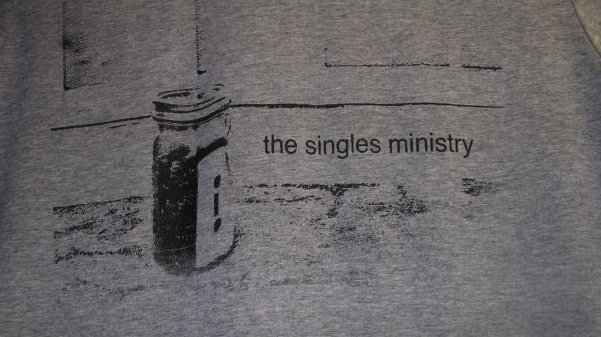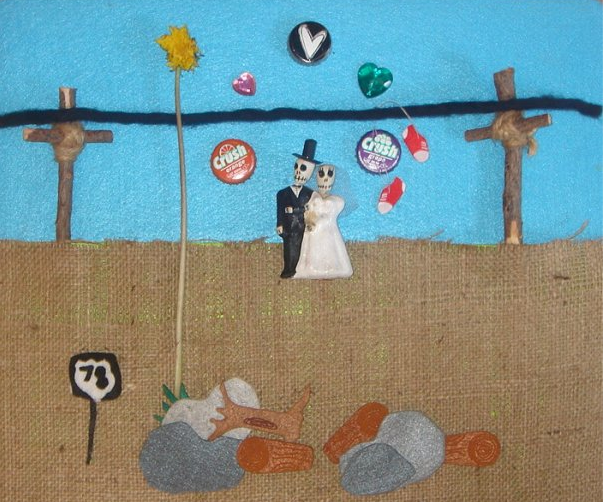by Liana Gamber Thompson
In the spring of 2009, I was struggling to churn out a dissertation and happy to latch on to any kind of distraction in the process. So instead of writing chapters, I started writing and recording songs with my husband, John, in our garage. Armed with nothing more than a laptop installed with Garage Band and a 4-inch-tall portable mic, we sought to unleash our creative sides which had long been languishing under the demands of work and the responsibilities of adult life.
We’d both been committed to making music growing up, plucking out tunes from the basements of our suburban Atlanta homes and playing in a succession of bands, some serious, most not so much. But we’d never made music together, and we relished the chance to give it a try after all these years. That’s how our folk rock duo, The Singles Ministry (a moniker that gave nod both to our mutual but fading church upbringings and the piles of cassette singles we’d collected as kids), was born.

Our homemade screen-printed (limited edition!) Singles Ministry t-shirts.
In the next few months, we had put together a handful of songs. Eager to have our friends and family listen, we started sharing them on Facebook. Judging from the warm responses we got, almost entirely from people who loved us regardless of our musical endeavors, we thought, if just for a moment, we might be able to quit our day jobs some day and focus on music full time. Maybe this was the path we were always meant to take, and we’d somehow made a sharp turn away from it in our twenties, when people usually pursue such dreams.
Three years later, after a flurry of website and t-shirt making, selling our music to friends on iTunes, putting a homemade stop-motion video up on YouTube, and making our music available through free services like last.fm, we’re still at our day jobs. And actually, that’s not such a bad thing at all since we are both lucky enough to have interesting and fulfilling ones.

A still from the stop motion video for our song, September of 78. Felt board meets realismo mágico!
But the internet, with all its users, tools, and platforms, did not make us famous. I’m sure our songwriting, performance or production skills might have had something to do with it, too, but our efforts garnered us almost no new listeners. Our music had failed to reach any sizable audience because, frankly, we are terrible self-promoters.
And, of course, it’s not just the two of us who have struggled with this task of finding an audience. Amateur vloggers, musicians, artists, and politicos of all varieties send (often heartfelt) material into the online void every day in the hopes that others will lend an ear (or an eyeball). But what happens when there are no listeners? No viewers? No commenters?
In my research on youth and politics, which has included examinations of young libertarians, Occupy Wall Street participants, and teenage music fans, I’ve witnessed countless attempts to spark conversation, debate, or just plain thoughtfulness that have gone unheeded due to lacking style, spreadability, or optimization. After a few attempts, many of these participants simply give up on the medium of YouTube or other modes of online self-expression altogether.
Popular conceptions about DIY culture would have us believe that anything is possible on the internet. You could get a record deal after posting your video on YouTube! Or better yet, crowdfund your own album and forget the record deal! Your pithy political rant could go viral any day!
The truth is, finding an audience requires skills and the acumen to place one’s work in a position to be heard. If we want online discourse to flourish and to give young people the greatest chance at engaging in creative self-expression and, in some cases, new forms of civic engagement, then maybe we should think about what kinds of literacies, strategies, and skills need to be honed in both formal and informal learning spaces. Because the internet, despite its reputation as a great equalizer, does not rock stars or pundits make.

